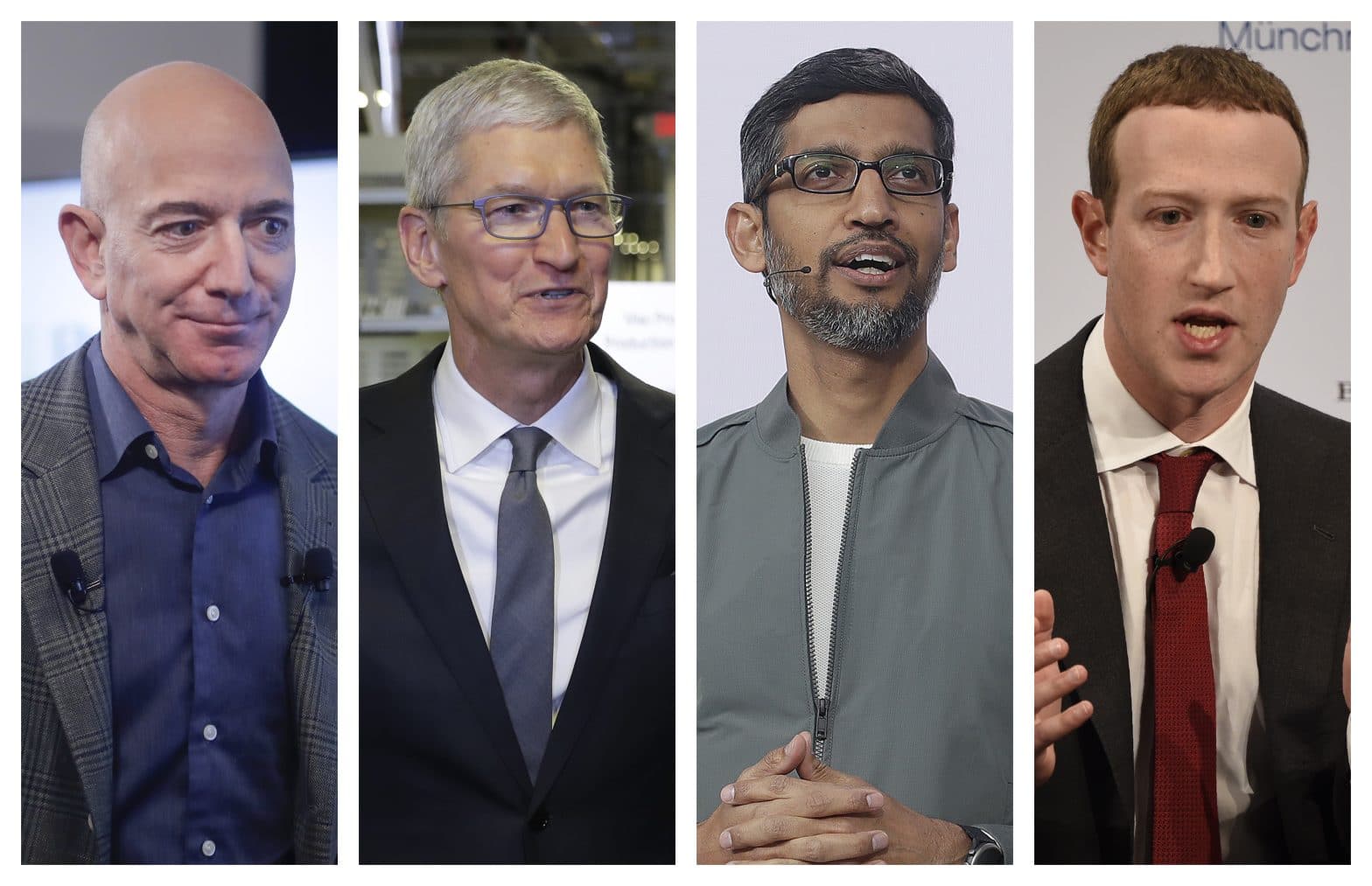Democrats Call for Congress to Rein In, Break Up Big Tech

WASHINGTON (AP) — Democratic lawmakers are calling for Congress to rein in Big Tech, possibly forcing Facebook, Google, Amazon and Apple to break up their businesses, while making it harder for them to acquire others and imposing new rules to safeguard competition.
The proposals in a report issued Tuesday follow a 15-month investigation by a House Judiciary Committee panel into the companies’ market dominance.
Those kinds of forced breakups through a legislative overhaul would be a radical step for Congress to take toward a powerful industry. The tech giants for decades have enjoyed light-touch regulation and star status in Washington, but have come under intensifying scrutiny and derision over issues of competition, consumer privacy and hate speech.
The 450-page report offers Congress a possible roadmap for action, potentially with a new balance of political power in Congress and a new president next year. Democratic presidential contender Joe Biden has said that company breakups should be considered. If such steps were mandated, they could bring the biggest changes to the tech industry since the federal government’s landmark case against Microsoft almost 20 years ago.
The investigation found, for example, that Google has monopoly power in the market for search, while Facebook has monopoly power in the social networking market. The report said Amazon and Apple have “significant and durable market power” in the U.S. online retail market, and in mobile operating systems and mobile app stores, respectively.
Some critics of the companies have singled out Facebook’s Instagram and WhatsApp services and Google’s YouTube and Android cellphone operating system as among the businesses that should be considered for divestiture.
The report said the four companies have abused their market power by charging excessive fees, imposing tough contract terms and extracting valuable data from individuals and businesses that rely on them.
“Each platform now serves as a gatekeeper over a key channel of distribution,” the report says. “By controlling access to markets, these giants can pick winners and losers throughout our economy.”
In addition to proposing separations of some dominant tech platforms from the companies’ other businesses, the report also calls for the platforms to be required to offer equal terms for equal products and services for all users. It proposes laws be changed to impose a higher bar for approving future tech industry mergers and acquisitions.
And it asks Congress to boost the enforcement powers of antitrust regulators, such as the Federal Trade Commission, and to increase the budgets of the FTC and the Justice Department’s antitrust division.
Although the Judiciary antitrust subcommittee’s investigation was bipartisan, Republican lawmakers on the panel didn’t sign on to most of the recommendations.
Republicans issued their own report Tuesday titled “A Third Way to Take on Big Tech.” Authored by Rep. Ken Buck of Colorado, it called for “targeted” enforcement of existing antitrust laws rather than “onerous and burdensome regulation that kills industry innovation.”
Google took issue with both reports, saying they contain “outdated and inaccurate allegations from commercial rivals” about Google’s search engine and other services.
“Americans simply don’t want Congress to break Google’s products or harm the free services they use every day,” the company said in a statement. “The goal of antitrust law is to protect consumers, not help commercial rivals. Many of the proposals bandied about … would cause real harm to consumers, America’s technology leadership and the U.S. economy — all for no clear gain.”
Facebook said acquisitions “are part of every industry, and just one way we innovate new technologies to deliver more value to people.”
“Instagram and WhatsApp have reached new heights of success because Facebook has invested billions in those businesses,” the company’s statement said. “A strongly competitive landscape existed at the time of both acquisitions and exists today. Regulators thoroughly reviewed each deal and rightly did not see any reason to stop them at the time.”
In a blog post Tuesday, Amazon warned that “fringe notions on antitrust would destroy small businesses and hurt consumers,” without mentioning by name the report or the House antitrust subcommittee. It decried “misguided interventions in the free market.”
Spokespeople for Apple didn’t immediately return a request for comment.
In its investigation over the past 15 months, the antitrust panel heard testimony from mid-level executives of the four companies as well as from competitors and legal experts. It held a highly charged hearing in July to question the CEOs of the Silicon Valley behemoths. Its staff pored over more than a million internal documents from the companies.
The effort aimed to answer a key question: whether existing competition policies and century-old antitrust laws are adequate for overseeing the tech giants, or if new legislation and enforcement powers for regulators are needed.
Both Republicans and Democrats have accelerated their criticism of Big Tech in recent months, though sometimes for different reasons. The Trump Justice Department is moving toward antitrust action against Google, focusing on the company’s dominance in online search and whether it is used to stifle competition and hurt consumers. A bipartisan coalition of 50 U.S. states and territories, led by Texas Attorney General Ken Paxton, also has been investigating Google’s business practices. They have cited “potential monopolistic behavior.”
Google has argued that although its businesses are large, they are useful and beneficial to consumers. It maintains that its services face ample competition and have unleashed innovations that help people manage their lives. Most of its services are offered for free in exchange for personal information that helps Google sell ads.
Facebook, Amazon and Apple also have been targets of sweeping antitrust investigations by the Justice Department and the Federal Trade Commission.
























